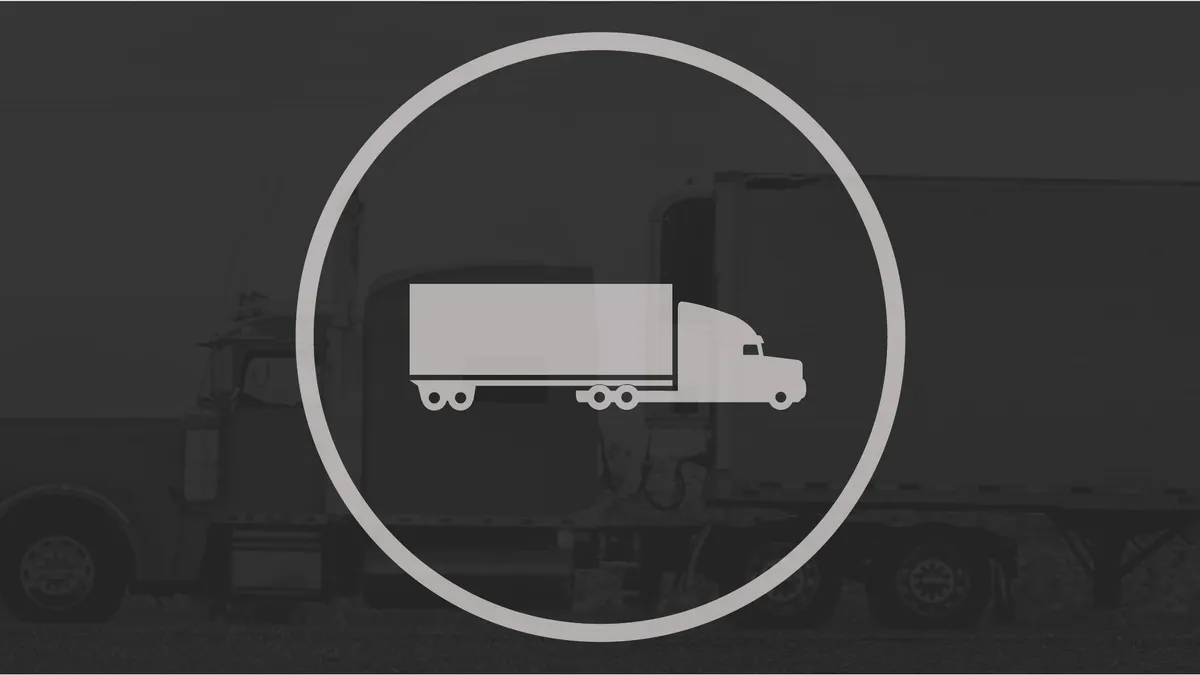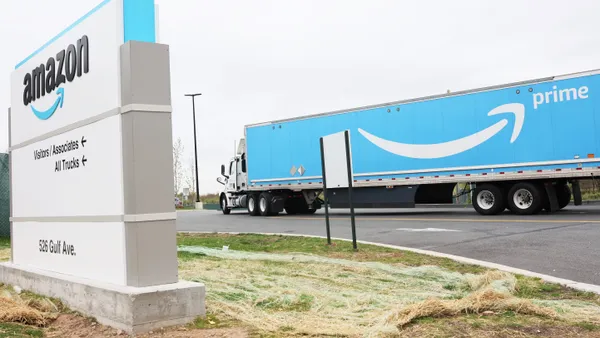Dive Brief:
- In April, demand for trucking cratered. DAT's load-to-truck ratio, a measure of demand, was down 32% year over year (YoY) for vans, down 33% YoY for reefers and down 72% YoY for flatbeds.
- Spot rates also fell in April across trucking modes. Compared to the same period in 2019, flatbed rates fell 17%, reefer rates dropped 10% and van rates sank 9%, according to DAT.
- "Truckload spot market data shows a sharp fall-off in freight activity over the past several weeks, and ACT expects further weakening over the coming weeks," UBS wrote in a research note following a conference call with ACT Research.
Dive Insight:
Trucking companies saw less demand in April as factories shut down and stay-at-home orders led to a drop in consumer demand, outside of grocery and other essential items. As fewer shippers look to move goods, trucking companies will struggle. But the shippers left on the market could benefit from lower spot rates as a result.
"We expect a supply/demand balance in the freight market to swing really sharply in favor of shippers in the short term, but then pretty sharply back towards carriers as we head into 2021," ACT Research Senior Analyst Tim Denoyer said on the call with UBS.
Jason Miller, associate professor of logistics at Michigan State University, said the lower spot rates will also result in lower contract rates for shippers "over the next few months." Capacity in the trucking market has also remained relatively consistent, which means carriers are being forced to "accept freight, even if potentially, it's not an ideal load," Miller said.
Truck movement began sliding at the end of March, foreshadowing the down month ahead.
"In the last week of fiscal March, dispatched load volume was 14% below the number of truckloads dispatched during the same week of March 2019," Landstar CEO Jim Gattoni said on the company's earnings call at the end of April. "This is one of the swiftest and most dramatic reductions in week-to-week load volumes in the history of the company."
Landstar did see increased volume in food and packaged goods, but it was "more than offset" by the drop in business from the automotive sector, Gattoni said.
Werner CEO Derek Leathers said an initial surge in demand to move "pandemic essentials" has softened. Demand for less essential items is improving, Leathers said.
But the full impact of the coronavirus pandemic won't show up in the numbers for trucking companies until Q2 earnings in another three months.
"This deterioration late in the quarter did not have a significant adverse impact on the first quarter overall, but will negatively impact volume in April and likely the remainder of the second quarter," Gattoni said on an earnings call last month.














